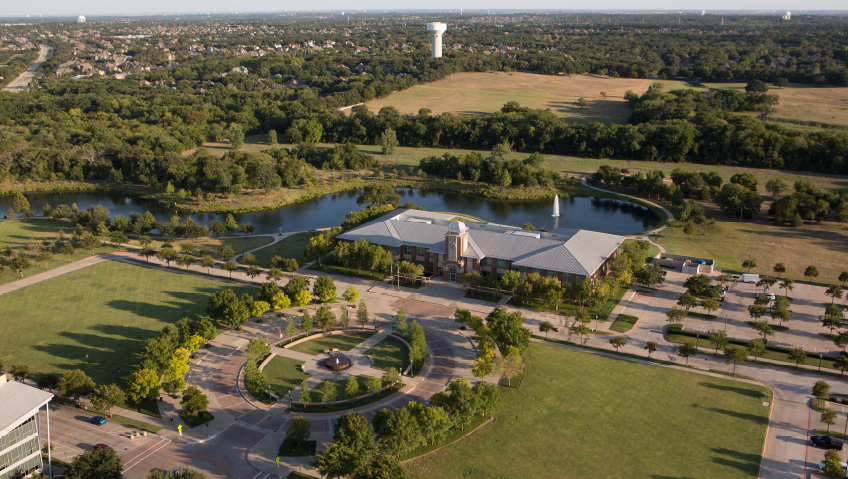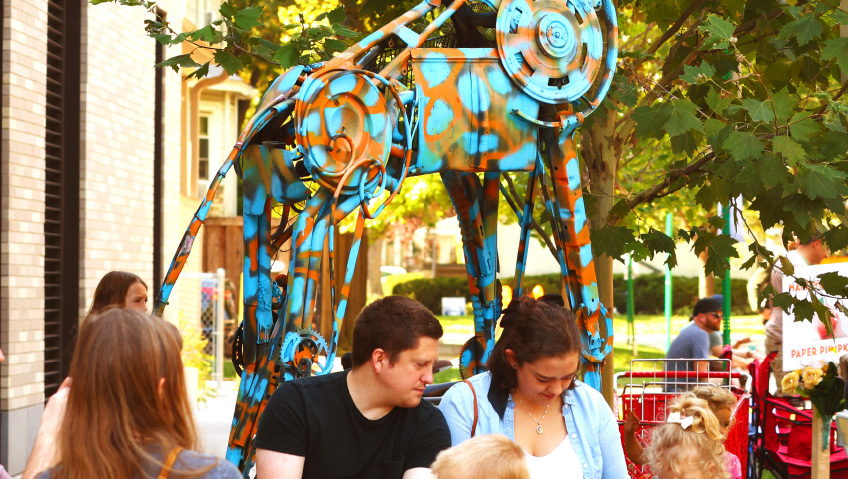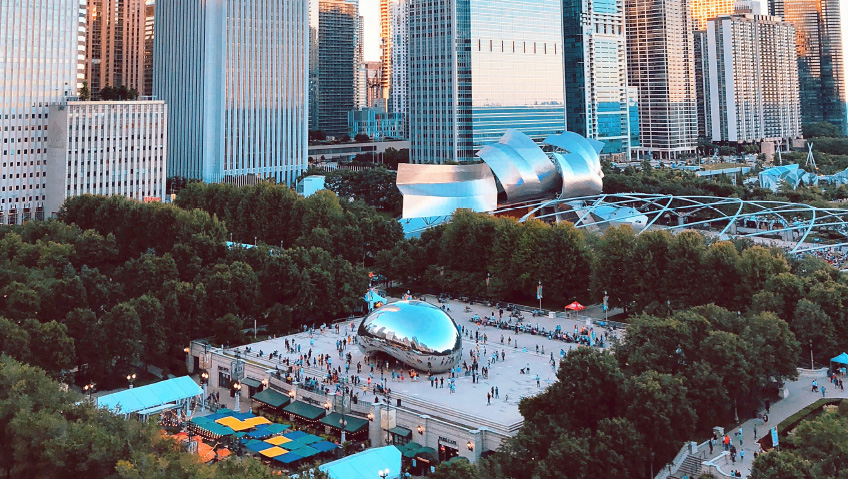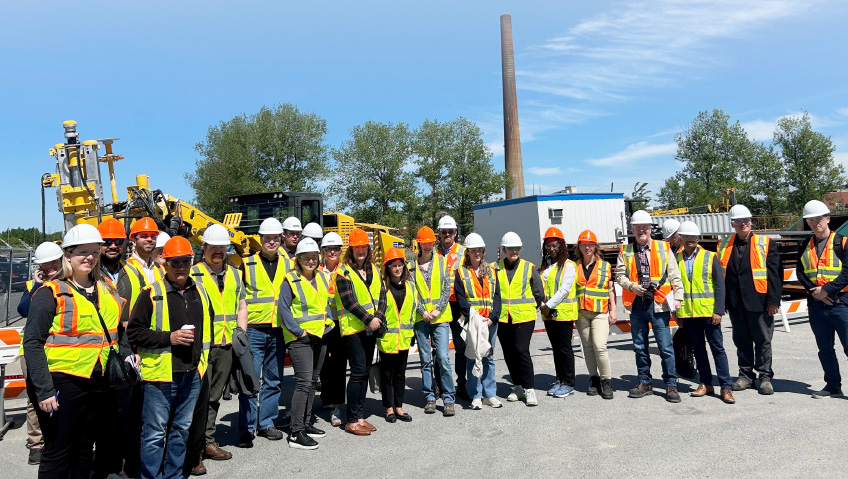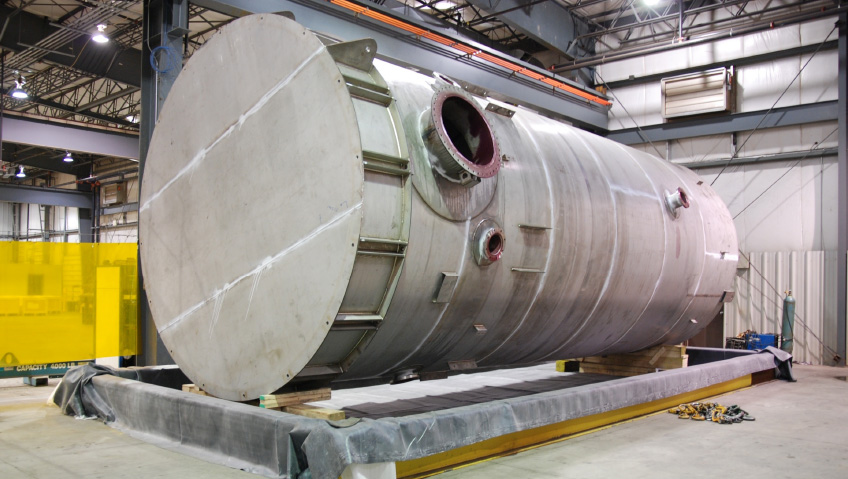Although the City of Keller is less than 20 miles from the heart of Fort Worth, life couldn’t be more different. Compared to the Dallas-Fort Worth-Arlington’s population of 7,500,000, Keller is at 45,400 and expected to cap at around 51,000 – which is just fine with this historic Texas city.
Frequently appearing on many best-of lists, including CNN/Money Magazine’s biennial ‘Top 100 Places to Live — America’s Best Small Towns’ three times since 2007 (and taking seventh place in 2009) along with being one of the Gadberry Group’s ‘Top 10 Most Notable High-Growth Areas in the Country’ and deemed one of the ‘Best Places to Live’ according to Texas Magazine, it’s not surprising that the City of Keller is delighted.
“Keller will often be on a couple of dozen of the big state or national lists every year,” says Rachel Reynolds, Communication and Public Engagement Manager. “Just in 2020, we were named among the Best Small Cities to Live In in America, and one of the Top 100 Safest Cities in the United States.”
A haven for family and business
For locals and companies, the City of Keller checks all the boxes on a list of must-haves.
Covering an area of 18.4 square miles (29.6 square km), Keller is considerably smaller than nearby Fort Worth, but comes with many advantages. From a downtown area rich in history to an active local government, local business community, engaged residents, and striking natural settings, Keller has everything except the chaos and stress of larger cities.
With a youthful average age of about 39 and an average household income totaling $184,628, Keller is perfect for families and especially for businesses catering to families and lovers of the outdoors.
“When you look at it on the state level, we made lists on everything from the Best Place to Raise a Family to the Best Suburb to Live In or To Buy a House In, all the way to Best Place to Retire,” says Reynolds. “So while we do have an average age of 39, Keller has done a fantastic job over the years of still making sure we cater to families of all different shapes and sizes. A big reason people choose to live in Keller and to do business here is the sense of community this city has been able to hold on to as it’s grown.”
Unlike many larger urban centers, the City of Keller strives to maintain a small-town feel, including Old Town Keller. Starting as a train stop in 1881, the area eschews chain restaurants and retailers, favoring instead local independents, unique one-of-a-kind shops and boutiques, and an array of service-related businesses, all set against the backdrop of live music venues, art murals, museums and more. While it would be easy to give in to big box-type retailers and restaurants, Keller prefers keeping things family-friendly and community-oriented in Old Town.
“Over the years, Keller has really become a beacon for those who want that small-town feel in their community, want those local businesses, and are here for the school district and all those great family attractions,” says Mary Culver, Director of Economic Development.
Working together
By keeping things relatively small, the City of Keller, the Chamber of Commerce, the Old Town Keller Merchants Association, and others do a superior job of business attraction and retention. Remaining proactive and creating business support strategies, initiatives include the successful ‘Keep it in Keller’ campaign.
Through a dynamic website and Facebook page, Keep it in Keller provides a wonderful guide to the restaurants, services, retailers, and attractions this family-oriented community has to offer.
Adapting well to COVID-19, Keller was able to transition to virtual events. Recently wrapping up its successful Small Business Week, a virtual scavenger hunt was held to draw foot traffic to area businesses through a smartphone app. Through various ‘missions,’ participants had to figure out which business to visit and uncover clues to win. “That was a very successful program that saw a lot of purchases for businesses. We have had other scavenger hunts over the years, which have definitely helped with our retention, but this year we upgraded to reach more participants through the app and increased our marketing efforts. It has provided an engaging and fun way for our community to help our businesses through a very difficult time and will have lasting effects because many participants have told us that they found a new favorite spot to eat or shop,” says Culver.
Like other communities, Keller faced challenges when the pandemic struck. City Council and the community alike felt the need to help out businesses and get involved. Quickly assembling a task force consisting of Council members, business owners and a representative of the Greater Keller Chamber of Commerce, the disaster recovery program ‘Keller – Beyond the Mask’ was born. This program included the creation of a Forgivable Loan Fund.
With funding through several donation activities and matching funds from the City, local businesses suffering through COVID were helped out in a variety of ways, including a Virtual Quarantine 5K. “We were able to award forgivable loans to 76 businesses totaling just under $219,000,” says Culver of the successful initiative. “And I’m proud to say that as of today we have retained 100 percent of those businesses.” The last loans were dispersed in August 2020.
To further ensure business retention and commercial buildings are maintained, the City also offers a façade improvement grant to encourage the rehabilitation, enhancement and restoration of building façades and stimulate business activity. The Keller City Council recently approved an update to the program policies to make it easier for applicants to submit their plans and include options for enhanced landscaping and art visible to the public. These updates were included to attract even more businesses and increase participation.
Boost for business
This year, the city also updated the Future Land Use Plan. A comprehensive 102-page document, the Plan discusses the fact that less than 11 percent of land within city limits remains available for future buildout, as well as the importance of City Council making the best decisions today for the years to come.
As a result, certain types of businesses are being prioritized. These include research and development – especially in the tech sector – e-commerce, and some small assembly facilities. “We have a high demand for experiential retail and restaurant, and that is a big focus for us as well,” says Culver.
Covering important topics including an overview of future land use, residential development, quality of life, economic development, and the transportation system, the plan reflects an important update to a document first drafted in 1998, and amended sporadically through 2017. “Most importantly, it is a vision for our future, and a tool aimed at achieving the highest and best use for the 18.4 square miles of land within our city limits,” it says.
“Keller City Council invested significant time identifying what types of business recruitment supported the goals of a family-friendly community and where best to locate those businesses for success,” says Culver.
To further support the Future Land Use Plan’s business and community goals, City Council approved its second Tax Increment Reinvestment Zone which includes potential public infrastructure projects totaling $129 million. Those projects include several significant projects already in the works to improve drainage, roads, water and wastewater, in the Old Town Keller District. A dedicated pedestrian crossing for Main Street and a pedestrian-friendly festival street for events are priorities to make Old Town Keller a shopping, dining, and experiential entertainment district.
Taking Center Stage
One of Keller’s up-and-coming projects is Center Stage, a 38-acre mixed-use development located close to a number of Fortune 500 corporate campuses like Charles Schwab, Deloitte, and Fidelity. Purchased by Realty Capital Management (RCM) last April, the development will see the construction of 475 multi-family units, 57 single-family patio homes, and 60,000 square feet of space for retail, office, and restaurant use.
True to its name, an integral part of the recent development will include an intimate performance stage facing a tree-lined lawn and surrounded by restaurants. The project is expected to break ground later this year.
Owing to Keller’s young demographic, the city council is striving to make Keller the most family-friendly city in the state of Texas. This is reflected in the city’s award-wining parks and recreation system, the business scene — including five locally owned toy and collectibles stores — and many of the more than 60 permitted annual events held in town. That family-friendly focus also influences the city’s recruitment efforts as leaders work to attract unique businesses to the community.
“There’s a reason certain businesses are going out with a new generation: Those young families are really looking for those experiential concepts. They don’t want your typical large franchises coming in; they would like to see unique businesses where they can have experiences with family and friends, especially in developments that foster that sense of community,” says Reynolds.
“The community is a big draw for businesses looking in this area,” she says. “People here love their city, they love the businesses here, and they are here to support them. The support we saw during the pandemic was incredible, and I think that speaks volumes compared to just going into some massive shopping center in a nearby city where they’re going to be one of 50 restaurants all in one spot, surrounded by chains,” she says.
“We see that our small businesses here really thrive.”

